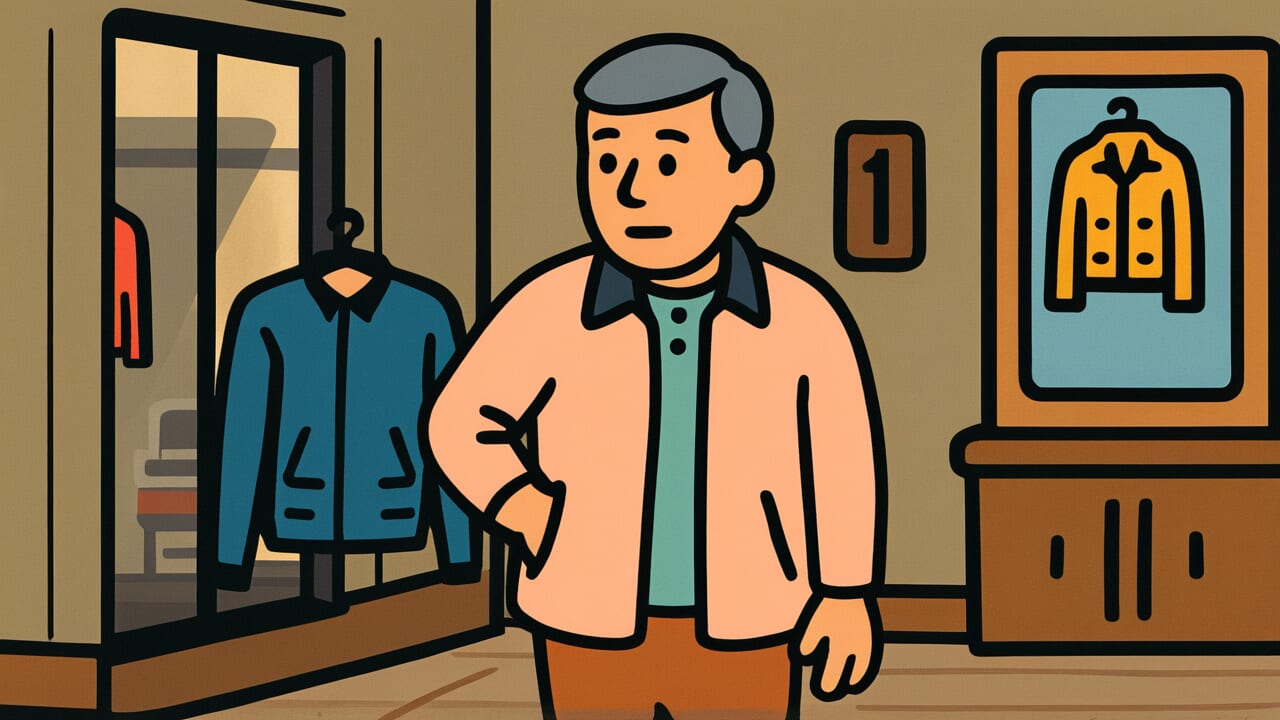How to Read “How can clothes become old without first being new?”
Koromo, arata wo hezunba nani ni yorite furunaran
Meaning of “How can clothes become old without first being new?”
This proverb teaches an important lesson through a simple truth about clothing.
New clothes cannot instantly become well-worn favorites. They must be worn, washed, and lived in day after day.
This “process of being new” creates the beloved old clothes we cherish. The same principle applies to all life experiences.
The proverb emphasizes the importance of accumulating experiences. A beginner cannot leap directly to expert level.
The inexperienced stage, the trial-and-error period, the failures along the way—all of these are necessary.
In modern times, we often want immediate results. But this proverb offers hope with a different message.
Your new experiences today are creating your depth for tomorrow. It teaches the value of cherishing each moment without rushing.
Origin and Etymology
No clear written records document the origin of this proverb. However, its structure offers interesting insights.
“How can clothes become old without first being new?” uses classical Chinese-influenced Japanese phrasing.
The rhetorical expression “hezunba” and the questioning form “nani ni yorite” are typical of didactic Japanese writings influenced by Chinese classics.
The core of this proverb lies in the contrast between “shin” (new) and “ko” (old).
“Ko” doesn’t simply mean old. It refers to something that has gained value through the passage of time.
New clothes are worn, gradually conform to the body, fade in color, and eventually become beloved old garments.
This natural process is the essence of what the proverb conveys.
Japan has long embraced the spirit of “mottainai” and a culture of using things carefully over time.
The value placed on the transformation from new to well-used connects to the aesthetic of “wabi-sabi” in tea ceremony.
This proverb likely emerged as a reflection of this uniquely Japanese sensibility toward objects and experiences.
Usage Examples
- My failures as a new employee—well, how can clothes become old without first being new? Those experiences made me the veteran I am today.
- Even if you’re clumsy at first, keep going. How can clothes become old without first being new?
Universal Wisdom
The universal truth in this proverb is that growth requires time as an essential element.
Humans instinctively seek shortcuts. We pursue efficiency and want results without the process.
But deep wisdom, genuine skill, and human maturity can never be obtained in one leap.
Why was this proverb created and passed down through generations?
Because people in every era have felt the anxiety of “I want to grow faster” and the frustration of “Why am I still immature?”
Our ancestors understood that this very impatience hinders growth.
Just as new clothes become old garments, people can only mature by accumulating experiences over time.
Failures, confusion, trial and error—all are part of “going through the new” process.
If you try to skip this process, you might gain superficial knowledge, but true depth will never emerge.
This proverb doesn’t reject your current inexperience or imperfection.
Instead, it teaches that these are necessary stepping stones to future maturity.
Don’t rush. Your experiences today are building your tomorrow. This gentle yet stern understanding of human nature is why it has endured across time.
When AI Hears This
The obvious phenomenon of new clothes inevitably becoming worn actually conceals a physical law governing the entire universe.
This is the second law of thermodynamics—the law of entropy increase.
Entropy, simply put, is the degree of “disorder” or “randomness.”
New clothes have fibers arranged orderly, uniform color, and structured organization. This is a low-entropy state.
But with repeated wearing, fibers fray, colors fade, and shape deteriorates. The clothes transition to a high-entropy state.
Crucially, this change only proceeds in one direction. Worn clothes never spontaneously return to new condition.
This one-way nature is called the arrow of time.
Physicists have long grappled with “Why does time flow only from past to future?”
The answer is entropy increase. When you pour milk into coffee, they mix but never separate.
Broken cups don’t reassemble. Everything moves from order to disorder.
This proverb intuitively captures a fundamental principle of the universe through the familiar example of clothing.
New things inevitably becoming old isn’t just empirical observation. It’s a necessity demanded by the structure of the universe itself.
Lessons for Today
This proverb teaches you not to dismiss your current experiences as insignificant.
You might feel anxious seeing others’ success on social media. You might feel discouraged by your slow growth.
But everyone must go through the “new” stage. No exceptions.
Modern society emphasizes efficiency and shortcuts. But truly valuable things—your depth and individuality—only emerge from accumulated experiences over time.
Today’s small challenge, this week’s failure, this month’s trial and error—all are precious parts of “going through the new” process that builds your future self.
What matters is not rushing, yet not stopping either. Keep wearing new clothes.
Accumulate experiences little by little each day. Learn. Grow. This continuity will eventually guide you to a rich “old” state.
Your current inexperience isn’t shameful. It’s your starting point for growth.
Accept this fact and treasure today’s experiences.



Comments